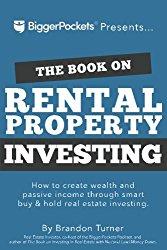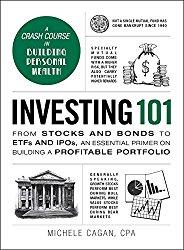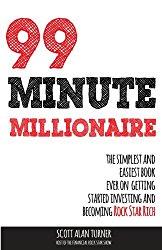In looking through the various blogs and chat rooms, I noticed several individuals in similar situations asking questions about investing. I've also had numerous individuals who, after finding out that I'm an investor, ask me the same questions. Basically it goes like this:
I recently started working, have a bit of extra income, and have heard that I should start investing. The trouble is I don't know how to start. How do I learn what to buy? Should I buy individual stocks or mutual funds or something else? How much time will it take? Where can I go to find out more about this?I'm planning to start addressing this audience through a series of posts, all under the category, "For the New Investor." Today I thought that I would start that thread with some basic information, using a novice investor named Frank.

SmallIvy Book of Investing: Book1: Investing to Grow Wealthy

Now Frank has started his first job, having graduated college about three months back. He has avoided student loans and the like, is making a good income - enough to pay for his apartment with a little cash left over. He has already enrolled in the 401k at his work, investing it over a series of mutual fund types as I suggested in another post, and still has some funds to invest. He has also put away several months worth of expenses into a savings account, which he uses as needed to pay for the random big purchases that come up without taking on debt, and which serves as a cushion should he lose his job and spends some time out of work. Frank is a saver, always spending less than what he makes and regularly putting a few hundred dollars into the bank each month.Frank would like to start acquiring assets so that he could become financially independent, not having to work just to live. He is therefore serious about investing - not looking at it as simply entertainment.
Frank is the perfect candidate for the strategy I describe in Investments Strategy category of posts. He has a long time horizon ( a long time before he will need the money), extra money to invest, some of which he can afford to lose in the mean time without affecting his lifestyle, and a desire to grow wealth. A critical aspects of Frank's plan is the constant saving, regularly putting some money away. Even though he may not have much to start with, this will allow him to gradually grow his portfolio and obtain his goal.
Get Your Jam On and Help The Small Investor Keep Going
Once Frank has saved up a few thousand dollars - enough for 100 shares of a company in the $20-40 range, he should use the stock picking tips I gave to select a stock he feels has good long-term growth characteristics. Note that he will be wading into the investment waters for the first time, so he will learn how he reacts to the fluctuations in price. He may find that he just can't stand to see the random dips that occur. If this is the case, he should probably pick some index funds and just start saving and investing there - he will do just fine. If he finds that he can stomach the ups and downs, understanding that the price of the stocks he buys will move randomly, but that in the long-term he will make out well, he has the nerves of a stock investor.
Buy Your New Tools Here and Help Keep the Small Investor Going
Once he has bought his first 100 shares, he should continue to save, hoping that the stock will drop a bit so that he can buy some more shares as he saves up enough. He may also look for one or two other companies, buying 100 shares each of them. Once he has 1-3 stocks he favors, he should continue buying shares, picking the one that looks like the best value at the time he has enough to invest, until the positions in each become significant enough that a total loss in one of the positions would be a serious setback. He should have 500-1000 shares of each of the companies by this point.
Let's look at what Frank has done here. He realizes that it is more important to grow his funds rapidly than to preserve what he has, so he has taken a few large positions. He has used good stock picking techniques to select companies that have good long-term prospects. He is serious about making a large profit and has taken large positions, such that if he is right and the stock moves up by $30 per share over the next year he will make $15,000-$30,000, rather than $3000 as he would have made if he had only bought 100 shares of several companies and one of his picks turned out good.
He knows that market fluctuations may move the stocks all over the place, but over time the companies should grow. He has time on his side and can afford to ride through some of the fluctuations. He also realizes that one of the companies may be a bad pick, significantly falling in value and forcing him to sell later at a loss. He also knows, however, that if one of his picks grows significantly, it will make up for another bad pick, since a stock can only drop to $0, but can grow indefinitely.
In future posts we'll continue with this thread, describing the next steps Frank should use to build his portfolio.







Have a question? Please leave it in a comment. Follow me on Twitter to get news about new articles and find out what I'm investing in. @SmallIvy_SI
Disclaimer: This blog is not meant to give financial planning or tax advice. It gives general information on investment strategy, picking stocks, and generally managing money to build wealth. It is not a solicitation to buy or sell stocks or any security. Financial planning advice should be sought from a certified financial planner, which the author is not. Tax advice should be sought from a CPA. All investments involve risk and the reader as urged to consider risks carefully and seek the advice of experts if needed before investing.
